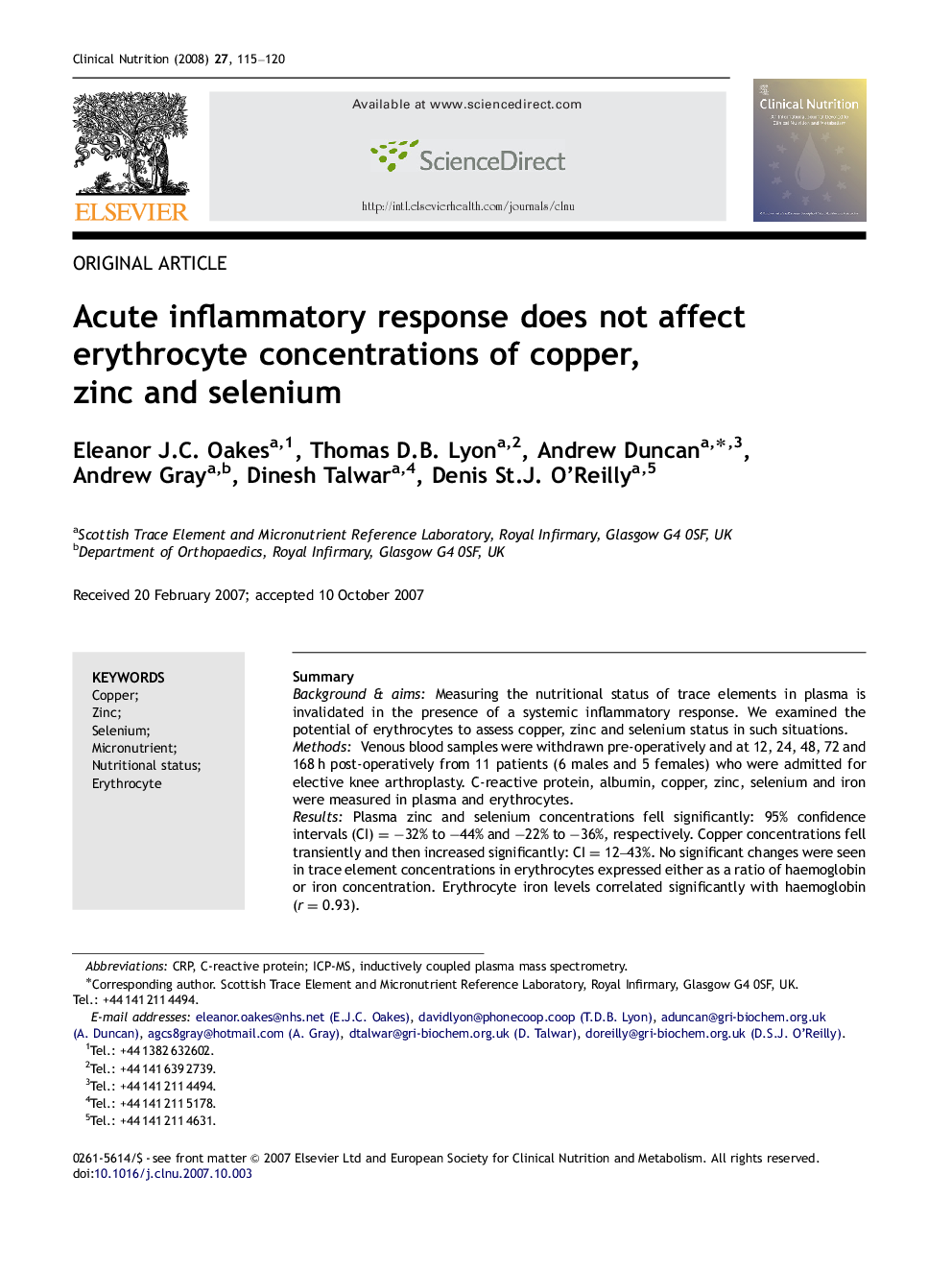| کد مقاله | کد نشریه | سال انتشار | مقاله انگلیسی | نسخه تمام متن |
|---|---|---|---|---|
| 2687750 | 1143041 | 2008 | 6 صفحه PDF | دانلود رایگان |

SummaryBackground & aimsMeasuring the nutritional status of trace elements in plasma is invalidated in the presence of a systemic inflammatory response. We examined the potential of erythrocytes to assess copper, zinc and selenium status in such situations.MethodsVenous blood samples were withdrawn pre-operatively and at 12, 24, 48, 72 and 168 h post-operatively from 11 patients (6 males and 5 females) who were admitted for elective knee arthroplasty. C-reactive protein, albumin, copper, zinc, selenium and iron were measured in plasma and erythrocytes.ResultsPlasma zinc and selenium concentrations fell significantly: 95% confidence intervals (CI)=−32% to −44% and −22% to −36%, respectively. Copper concentrations fell transiently and then increased significantly: CI=12–43%. No significant changes were seen in trace element concentrations in erythrocytes expressed either as a ratio of haemoglobin or iron concentration. Erythrocyte iron levels correlated significantly with haemoglobin (r=0.93).ConclusionsPlasma concentrations of copper, zinc and selenium are unreliable markers of status in patients with an acute inflammatory response. Erythrocyte concentrations of these trace elements may provide a more reliable measure in long-term studies of patients with a chronic systemic inflammatory response. Iron can be used instead of haemoglobin as the denominator when expressing erythrocyte concentrations of trace elements.
Journal: Clinical Nutrition - Volume 27, Issue 1, February 2008, Pages 115–120